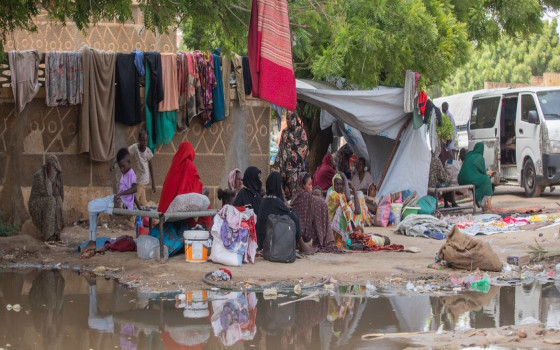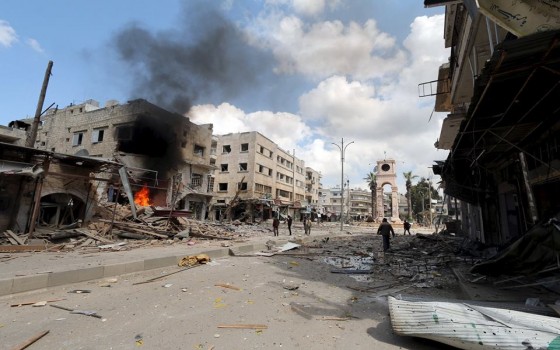
Sudan: Humanitarian situation continues to deteriorate amid worsening cholera, aid shortages, and flood-related displacement

- Europe and Arabs
- Tuesday , 22 July 2025 11:49 AM GMT
Khartoum - New York: Europe and the Arabs
The United Nations has warned of the continued deterioration of the humanitarian situation in Sudan, where a cholera outbreak, waves of displacement caused by floods, and a lack of aid threaten people's lives across the country.
The Tawila area in North Darfur State has recorded more than 1,300 cholera cases in just one week, amid a severe shortage of medical resources. The Tawila area hosts thousands of displaced people, most of whom fled deadly attacks on the famine-stricken Zamzam camp near El Fasher in mid-April, according to the UN daily news bulletin, a copy of which we received this morning, Tuesday.
The UN Office for the Coordination of Humanitarian Affairs (OCHA) stated that UN partners on the ground are struggling to meet the growing needs in the area, warning of increased challenges with the arrival of the rainy season. Local and international partners have established cholera treatment centers, but current capacity is far from sufficient to handle the increasing number of cases, according to the UN office, which stressed the immediate need for additional resources, including more treatment centers, mobile health facilities, ambulances, and waste management tools.
Floods in Eastern Sudan
Meanwhile, the Office for the Coordination of Humanitarian Affairs reported that more than 1,400 people have been displaced by floods following heavy rains in Kassala State, eastern Sudan, destroying more than 280 homes.
A rapid needs assessment mission conducted by OCHA and humanitarian partners found that people who returned to their villages are forced to rely on open pools of water contaminated with waste and other pollutants, due to the lack of any other water source. This increases the risk of waterborne diseases.
In White Nile State, many residents have begun returning to their homes in Umm Ramta locality. An assessment conducted by OCHA and humanitarian partners last week found an urgent need for health, water, sanitation, and hygiene support. The UN and its partners are mobilizing supplies before the rains cut off access.
Over 1.3 million people return
OCHA also reported an increase in the number of people returning to Khartoum and Blue Nile states, where authorities have begun to restore basic services. On Sudan's northern border, the number of returnees from Egypt has increased.
The International Organization for Migration (IOM) reported that nearly 200,000 people have returned to Sudan so far this year. IOM says that since November of last year, more than 1.3 million people have returned to their areas of origin.
OCHA warned that returnees face serious challenges, particularly the threat posed by unexploded ordnance. These conditions often lead families to return to displacement sites, undermining the sustainability of these efforts.












No Comments Found